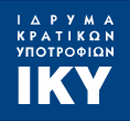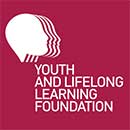Frequently asked questions about Erasmus+
We are here to help you and provide an answer to your frequently asked questions about Erasmus+.
General questions about Erasmus +
Erasmus+ is structured on 3 Key Actions in the fields of education, training and youth. The Key Actions are:
- Key Action 1 (KA1): Μobility of individuals.
- Key Action 2 (ΚΑ2): Partnerships for innovation and the exchange of good practices.
- Key Action 3 (KA3): Support to policy reform.
Learn more about the Key Actions of Erasmus+.
The objective of the digital priority of Erasmus+ is the development of a digital ecosystem in the field of education by ensuring accessible and high-quality digital education for all.
In view of achieving the objective of a climate-neutral EU by 2050, Erasmus+ aspires to become greener. It becomes environmentally sustainable and subsidizes train transportation or, where possible, transportation by other means of transport which do not pollute the environment, while it adopts digital switchover-related practices, such as the reduced use of paper.
n Erasmus+, people with fewer opportunities means:
- People with disabilities and/or people with serious health problems.
- People with learning difficulties and/or difficulties linked to the structure of the existing education and training systems.
- People facing social, economic, geographical barriers.
- People exposed to cultural differences, victims of discrimination linked to ethnicity, religion, sexual orientation and/or facing difficulties due to a combination of the mentioned discrimination barriers.
People with fewer opportunities are entitled to additional grant support for their participation in Erasmus+.
Eligible to participate in the fields of Education and Training as individuals are:
- Teachers and students from all education levels.
- Learners and staff in the initial and continuing vocational education and training (IVET and CVET),
- Higher education students and staff, including teaching and non-teaching staff,
- Adult educators,
- Adult education learners.
Eligible to participate are also recent graduates, on condition that they submitted their application for participation while they were registered in their institution. The mobility takes places within the first year after graduation.
Eligible to participate in the field of Youth are:
- Informal groups of young people (13-30 years old),
- Youth Workers,
- Non-profit organisations,
- Public bodies at local, regional or national level ,
- Social enterprises,
- Profit-making bodies active in Corporate Social Responsibility,
- Organisations active in the fields of education, training, youth or sport
Eligible to participate in the field of Sport are:
- Public or private organisations active in the field of sport. For example,
- public bodies in charge of sport at local, regional or national level,
- Sport organisations at local, regional, national, European or international level,
- National Olympic Committees or National Sport Confederations,
- Organisations active in the field of physical activity promotion
In order to submit an Erasmus+ application you must:
- Be advised on the Erasmus+ fields and choose the one that suits best your target group.
- Become familiar with the Key Actions and choose the one that suits best your needs and planning.
- Study carefully the Erasmus+ Programme Guide.
- Create an EU Login account and obtain your unique identifier, the Organisation ID.
- Submit your application by the deadline set for each application period.
Participate in the information events organized by the National Agencies, i.e. IKY (State Scholarships Foundation) and INEDIVIM (Youth and Lifelong Learning Foundation), depending on the field you wish to submit your application for.
Organisations can cooperate among each other or with other organisations, such as enterprises, museums, hospitals, research centres, non-governmental and other organisations, depending on the theme, the target group and the field of each project.
The objective is to create training material and new teaching methods, to exchange good practices and to build on the results on a broader basis.
In order to get a unique identifier, you must have an EU login account.
Connect the account with the email of the organisation/informal group you represent and not with your personal email. Visit the European Commission’s platforms Erasmus+ and European Solidarity Corps. Click on Register My Organisation and fill in your account details in the EU login account.
Click on Edit and follow the path and the instructions on the left-hand side menu. In order to complete the procedure:
- Enter the details of your organisation.
- Upload the legal and financial information of your organisation.
As soon as you fill in all the fields, click on Register my organisation. The identifier will be issued online instantly.
You will obtain an identifier the first time that you submit a grant request. Use this identifier to apply for any call you wish and your data will be automatically filled in in the application form.
The applications submission deadlines are stated each year in the Erasmus+ Programme Guide and are different for each Key Action and field. For 2022, the deadlines applicable to each field and Key Action are as follows:
Education and Training
- 23/02 for Key Action 1
- 23/03 for Key Action 2
The applications submission deadlines for small-scale partnerships are 23/03 and 04/10.
The submission deadline for applications for accreditation is 19/10.
Youth
- 23/02 and 04/10 for Key Action 1
- 23/03 and 04/10 for Key Action 2.
For mobility actions organized by accredited organisations, the applications submission deadline is 23/02.
For “DiscoverEU Inclusion Action”, the applications submission deadline is 04/10.
For virtual exchanges projects, the applications submission deadline is 20/09.
The submission deadline for applications for accreditation is 19/10.
Sport
Applications for the field of sport shall be submitted to the European Education and Culture Executive Agency (EACEA).
Applications for the Erasmus+ Programme are submitted electronically and in web format. Fill in the fields of the application and upload the necessary documentation in the “Annexes” tab.
Once the fields are marked with a green mark and once you have uploaded the Declaration of Honour, the Mandates and the documentation required by the National Agency for the field you are interested in, you can click the Submit button.
Then, click YES to confirm the submission of your application and NO to cancel its submission.
As soon as the summary of your application appears on the screen, confirm and close the form by clicking OK.
You can view your application from the “My applications” tab.
It is the online linguistic support that Erasmus+ offers to:
- Students.
- Migrants in view of their integration into the education and training systems of Europe.
Learn more on the Online Linguistic Support.
Questions about the fields of education and training
The Erasmus accreditation validates the commitment on the part of your organisation to the Erasmus+ Programme and serves as a guarantee for its continuous participation in Key Action 1 supporting the learning mobility of individuals.
Organisations deciding to apply for an Erasmus accreditation must develop an Erasmus project depicting their long-term strategy and their commitment to the Erasmus quality standards which ensure a high level of quality in the mobility actions organized.
The Erasmus accreditation is granted to school education, vocational education and training and adult education organisations.
Schools can look for partners at the SEG (School Education Gateway) platform and at the e-Twinning.
Vocational education and training organisations, adult education organisations can look for partners at the EPALE platform.
Students can look for traineeships at the erasmusintern.org platform.
We advise you to contact the local section of the Erasmus Student Network.
Questions about the fields of youth and sport
You need to have:
- An EU login account
- An Organisation ID (OID)
The details of your account are stored and filled in automatically. Apply on line during the applications submission period.
The number of the partners depends on the Key Action to which your project falls under. It is advisable that the number of participants from each partner is the same. Thus, your project will obtain a better quality control score.
Yes, you can. You can select any seminar you want that suits your needs. Seminars supported by the National Agencies.
Information on the seminars and the percentage of the expenses covered is available on the TCA Seminars page of Erasmus+ / Youth website.
For seminars not supported by the National Agency, visit SALTO website.
Youthpass is a certificate identifying the acquisition of knowledge and skills. Youthpass is obtained when participating in Erasmus+ / Youth, in European Solidarity Corps actions or when working in the field of youth.
It aims at ensuring the recognition of informal and non-formal learning and youth work. It recognizes and certifies the learning outcomes of your participation in the project. Be advised on the learning process, reflect on it and assess it.
If you are developing your project, it is necessary to integrate Youthpass in its learning content from the start and build on it during the activities.
Learn more on Youthpass.
In order to look for partners, you can:
- Send an email to eurodesk@inedivim.gr (Eurodesk network).
- Carry out a search with specific criteria on OTLAS partner finding tool at the SALTO website.
- Create posts on Facebook pages pertinent to the subject of your project.





